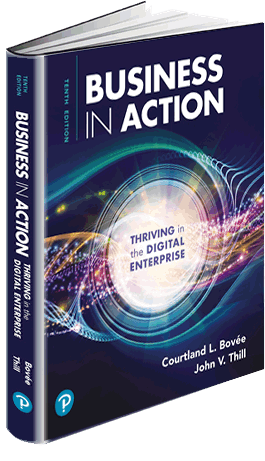 In an era of rapid technological advancement and shifting work paradigms, the traditional notion of a lifelong, stable career is becoming increasingly obsolete. Enter the gig economy: a dynamic, flexible, and often unpredictable landscape that's reshaping the very fabric of how we work. As educators, it's crucial to equip our business students with the knowledge and skills to navigate this new terrain.
In an era of rapid technological advancement and shifting work paradigms, the traditional notion of a lifelong, stable career is becoming increasingly obsolete. Enter the gig economy: a dynamic, flexible, and often unpredictable landscape that's reshaping the very fabric of how we work. As educators, it's crucial to equip our business students with the knowledge and skills to navigate this new terrain.
From Side Hustle to Main Hustle: The Evolution of Work
The gig economy has transformed the concept of the "side hustle" from a supplementary income source to a viable career path. Platforms like Upwork, Fiverr, and Etsy have become digital marketplaces where skilled professionals can showcase their talents to a global audience. Meanwhile, app-based services such as Uber and DoorDash have redefined traditional service industries, offering unprecedented flexibility to workers.
Consider the story of Sarah, a graphic designer who started freelancing on weekends. Within a year, her side gig had grown into a thriving business, allowing her to quit her 9-to-5 job and work on her own terms. Sarah's journey exemplifies the potential of the gig economy to empower individuals and foster entrepreneurship.
The Double-Edged Sword: Pros and Cons of Gig Work
While the gig economy offers tantalizing benefits, it's not without its challenges. On the plus side, workers enjoy unparalleled flexibility, independence, and the opportunity to pursue their passions. Businesses, too, benefit from access to a diverse talent pool and reduced overhead costs.
However, the gig life comes with its share of pitfalls. Job security is often tenuous, with fluctuating income and a lack of traditional benefits. The competitive landscape demands constant upskilling and self-promotion. Moreover, the lack of regulation in some sectors raises concerns about worker rights and fair compensation.
Bridging the Gap: Preparing Students for the Gig Economy
As educators, our role is to equip students with the tools to thrive in this new world of work. Here are some key areas to focus on:
1. Entrepreneurial Mindset: Foster a spirit of innovation and self-reliance. Encourage students to view themselves as business owners, even if they're working for others.
2. Digital Literacy: Proficiency in digital tools and platforms is non-negotiable in the gig economy. Ensure students are comfortable with various technologies and online marketplaces.
3. Personal Branding: In a sea of competitors, standing out is crucial. Teach students how to craft compelling personal brands and market their skills effectively.
4. Financial Management: Gig workers need to be adept at managing irregular income, taxes, and personal finances. Incorporate practical financial planning into your curriculum.
5. Adaptability and Continuous Learning: The gig economy rewards those who can quickly adapt to new trends and technologies. Instill a love for lifelong learning in your students.
6. Networking Skills: Building a strong professional network is vital for securing gigs and growing one's business. Emphasize the importance of networking, both online and offline.
Bringing the Gig Economy to Life in the Classroom
To make the topic more engaging and relatable, consider these interactive approaches:
– Host a "Gig Economy Fair": Invite successful freelancers and gig workers to share their experiences with students.
– Simulate a Gig Marketplace: Create a class project where students offer their skills and "bid" on each other's projects.
– Analyze Real-World Case Studies: Examine how traditional companies are adapting to the gig economy and discuss the implications.
– Debate the Future: Organize debates on topics like "Will the gig economy replace traditional employment?" to encourage critical thinking.
The gig economy is not just a trend; it's a fundamental shift in how we conceptualize work. By embracing this reality and preparing our students accordingly, we can help shape a workforce that's adaptable, innovative, and ready to face the challenges of tomorrow's business world.
As we stand on the cusp of this new era, let's empower our students to become not just participants, but pioneers in the gig economy revolution. The future of work is here, and it's time for education to catch up.
Preparing Students for the Gig Economy with Business in Action
Business in Action is designed to prepare students for the evolving dynamics of the gig economy, aligning closely with the points made in the above article. This textbook provides a comprehensive foundation in business principles while emphasizing the skills and mindset necessary to thrive in a flexible and rapidly changing work environment.
The textbook fosters an entrepreneurial mindset by encouraging students to think like business owners and develop self-reliance. Through case studies and real-world examples, students learn how to identify opportunities, innovate, and take calculated risks. Business in Action also emphasizes digital literacy, ensuring students are proficient with various digital tools and platforms essential for success in the gig economy.
Personal branding and effective marketing are crucial for standing out in a competitive gig marketplace. The textbook guides students in crafting compelling personal brands and utilizing social media and online portfolios to showcase their skills. Financial management is another key focus, with practical advice on managing irregular income, budgeting, and tax planning.
Adaptability and continuous learning are promoted through the textbook's emphasis on staying current with industry trends and technologies. Networking skills are also highlighted, teaching students the importance of building and maintaining professional connections both online and offline.
By integrating these essential skills and concepts, Business in Action equips students to navigate and excel in the gig economy, preparing them to become pioneers in the future of work.
Teaching Students to Navigate the Gig Economy with These Useful Exercises
1. Entrepreneurial Mindset and Personal Branding
Personal Brand Development Project
Task: Students create a mock personal brand for a gig economy worker in their field of interest.
Components
Design a logo
Craft a unique value proposition
Create a social media strategy
Develop a portfolio website mock-up
Presentation: Students pitch their personal brand to the class, explaining their choices and strategy.
Competitive Analysis
Students analyze and compare the personal brands of 3-5 successful gig workers in a specific niche.
Create a report highlighting strengths, weaknesses, and unique selling points of each brand.
Propose improvements for each brand based on the analysis.
2. Digital Literacy and Online Marketplaces
Platform Comparison Challenge
Divide the class into groups, each assigned a different gig economy platform (e.g., Upwork, Fiverr, TaskRabbit).
Groups research their platform and create a presentation covering:
Platform features and user interface
Commission structures and pricing models
Types of gigs available
Pros and cons for gig workers
Class discussion on which platforms suit different types of work and workers.
Mock Gig Proposal
Students choose a gig platform and create a detailed proposal for a hypothetical project.
Include project description, timeline, milestones, and pricing strategy.
Peer review session where students evaluate each other's proposals using platform-specific criteria.
3. Financial Management and Irregular Income
Gig Economy Budgeting Simulation
Provide students with a year's worth of simulated irregular income data for a gig worker.
Students create a comprehensive budget including:
Monthly fixed and variable expenses
Tax estimates and savings
Emergency fund allocation
Investment strategy
Students present their budgeting approach and how they addressed income fluctuations.
Tax Planning Workshop'
Invite a tax professional to lead a workshop on tax considerations for gig workers.
Students complete a mock tax return for a gig worker, including:
Estimating quarterly tax payments
Identifying deductible business expenses
Calculating self-employment tax
4. Adaptability and Continuous Learning
Skill Evolution Timeline
Students create a 5-year skill evolution timeline for a gig worker in their chosen field.
Research emerging trends and technologies in the industry.
Identify key skills to develop each year and explain their importance.
Propose methods for acquiring these skills (online courses, workshops, certifications).
Pivot Challenge
Present students with a scenario where their primary gig becomes obsolete due to technological advancements.
Task: Develop a 90-day plan to pivot their skills and find new gig opportunities.
Include: skill assessment, transferable skills identification, new skill acquisition plan, and marketing strategy for new services.
5. Networking Skills and Professional Growth
Virtual Networking Event
Organize a mock virtual networking event for the class.
Students create online profiles and practice making connections in breakout rooms.
Follow-up task: Students write personalized connection requests and propose collaboration ideas with their new "contacts."
Collaborative Gig Project
Pair students to work on a joint gig project that requires complementary skills.
Students must negotiate roles, responsibilities, and profit-sharing.
Final presentation on the project outcome and lessons learned from collaboration.
6. Cross-Industry Applications
Gig Economy Innovation Challenge
Students identify a traditional industry that hasn't fully embraced the gig economy.
Develop a business plan for a new gig economy platform or service in this industry.
Present the idea to the class, addressing potential challenges and solutions.
Industry Expert Panel
Invite professionals from various industries to form a panel.
Students present their gig economy strategies and receive feedback on how these could be applied or adapted in different sectors.
Panel discusses how gig economy principles are influencing their respective industries.
These improved exercises offer a more hands-on, practical approach to learning about the gig economy. They encourage critical thinking, creativity, and real-world application of concepts, preparing students for the evolving nature of work in the modern economy.
 Business in Action, 10th Edition
Business in Action, 10th Edition